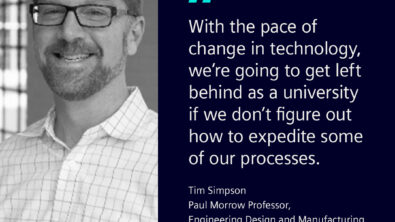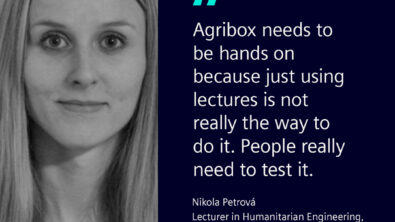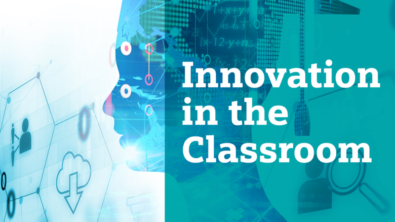Engineering Education: Perspectives from South Korea
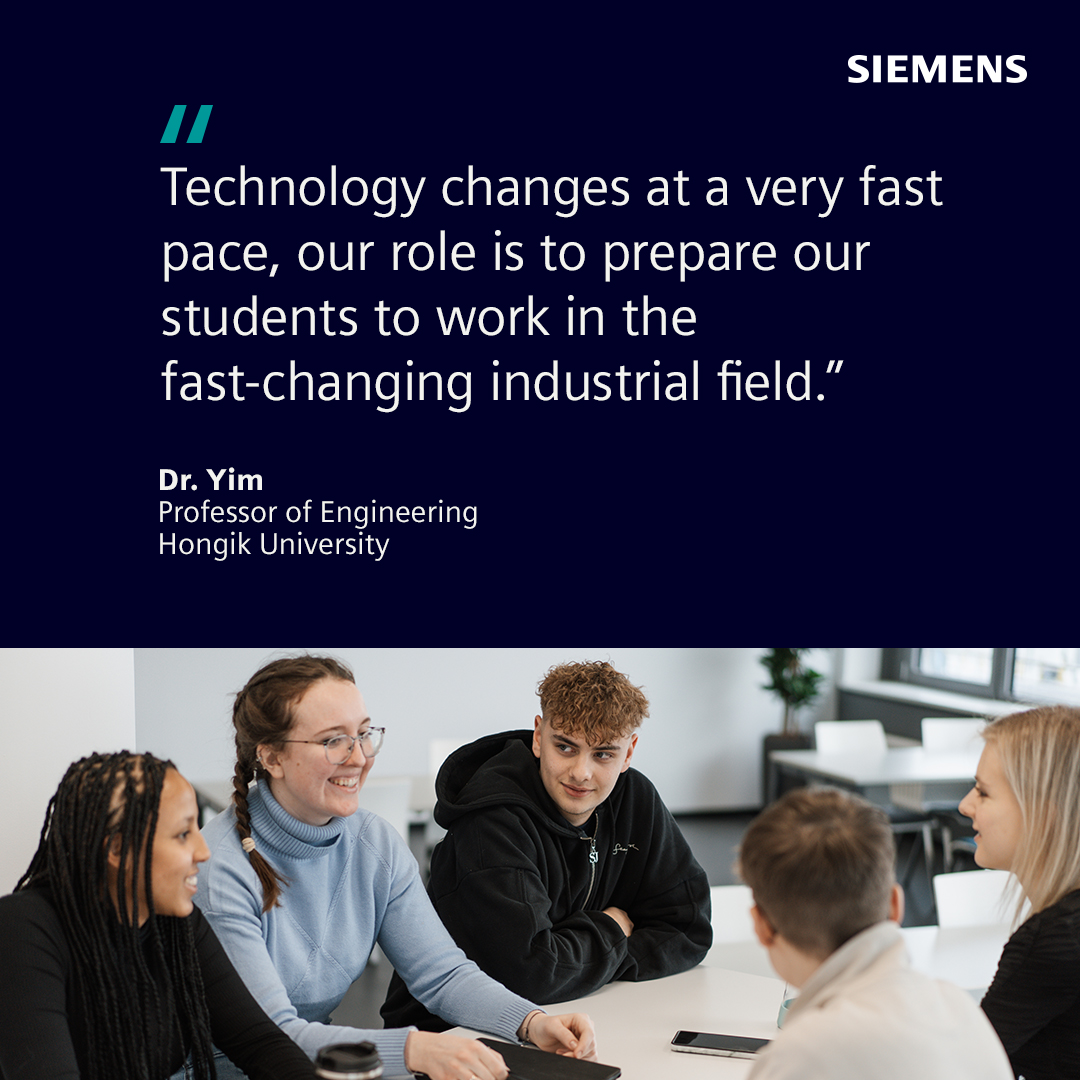
Education across the globe has seen monumental shifts in the last four years, and the field of engineering is no exception. This episode of “Innovation in the Classroom”, welcomes Shannon O’Donnell, who leads global academic engagement at Siemens DISW, for an engaging discussion with Dr. H.J. Yim, a professor of engineering at Hongik University, and Dr Donghyuk Shin, an assistant professor at the Korea Advanced Institute of Science and Technology (KAIST). Dr. Yim earned his PHD at the Massachusetts Institute of Technology (MIT), where his research focused around ultrasonic testing and industrial design. He now works in the Mechanical and Systems Engineering department at Hongik University to equip students with mechanical engineering and industrial design knowledge. Dr. Shin earned his PHD in Aerospace Engineering at the Georgia Institute of Technology. After working in industry and academia across the United States, France, and the United Kingdom, Dr. Shin returned to Korea to lecture in the Aerospace Engineering department at KAIST. Tune in to the podcast to hear Dr. Yim and Dr. Shin’s perspectives on the global collaboration between industry and academia, the importance of integrating real-world learning into the classroom, and engineering education in South Korea!
Global collaborations for engineering students in South Korea
The episode kicked off with a discussion on global collaboration opportunities for engineering students in South Korea. Dr. Yim spoke on Hongik University’s global program with RWTH Aachen University in Germany that allows German and Korean students to collaboratively learn industrial and engineering design, both remotely and in-person. He noted that students who participate in this program are much better prepared for industry, especially when it comes to joining companies with global operations and partners. The conversation highlighted the importance of exposing students to global environments in which they can actively collaborate with an international community.
Providing students with real-world experiences
Dr. Yim and Dr. Shin also shared their thoughts on how to bridge the gap between academia and industry. They noted how classroom learning is often disconnected from the needs of industry, and that providing students with real-world and hands-on learning is a crucial step that educators need to take in order to prepare students for industry. In particular, Dr. Shin highlighted the fact that engineering is all about compromise – in the real world, students have to learn how to make high-quality products out of limited resources. He noted how educators should aim to adapt students to this kind of industrial environment as soon as possible. Dr. Yim also shared his experiences with adapting students to real-world industry needs. His students shared with him that tackling real-world projects was challenging, but highly rewarding. He also mentioned how the Siemens Pace Center at Hongik University provides students with the opportunity to engage with these kinds of challenges. Oftentimes, real-world industry issues are much more complex than what is presented in the classroom, and solving these issues usually depends on the help of software and computer-aided engineering. The Siemens Pace Center provides a space for students to be able to learn these tools in order to prepare them for real industry needs.
The future of engineering in South Korea
Dr. Yim and Dr. Shin discussed the future of engineering in South Korea, especially in relation to the rapid development of Artificial Intelligence (AI). They noted how many companies in South Korea are currently in the process of incorporating AI tools into their products and operations, so educators are also trying to incorporate AI elements into courses in order to prepare students for the future of industry. However, Dr. Shin noted how if curriculum changes too quickly, maintaining fairness and standards of evaluation can become complicated. He advised educators to integrate current technological developments slowly and carefully. Dr. Yim and Dr. Shin also discussed the current discourse on sustainability in South Korea. Dr. Yim mentioned how since much of South Korea’s industry is based on manufacturing, concerns regarding greenhouse gas emissions have become an important topic of discussion. He shared how South Korea is starting to gain more awareness of the importance of sustainability.
Advice for engineering educators
Dr. Yim and Dr. Shin concluded the discussion with some advice for other engineering educators. They emphasized the importance of keeping up with ever-evolving technology, especially when it comes to the field of engineering. Dr. Yim shared the importance of keeping up with current trends and networking with companies in order to prepare students to tackle industry needs in such a fast-paced field. Additionally, Dr. Shin expressed how tools and methods used within the classroom also need to keep up with current developments. He shared how embracing new ways of teaching, such as pre-recording lectures, was difficult at first but actually helped him provide a more fruitful learning experience for his students.
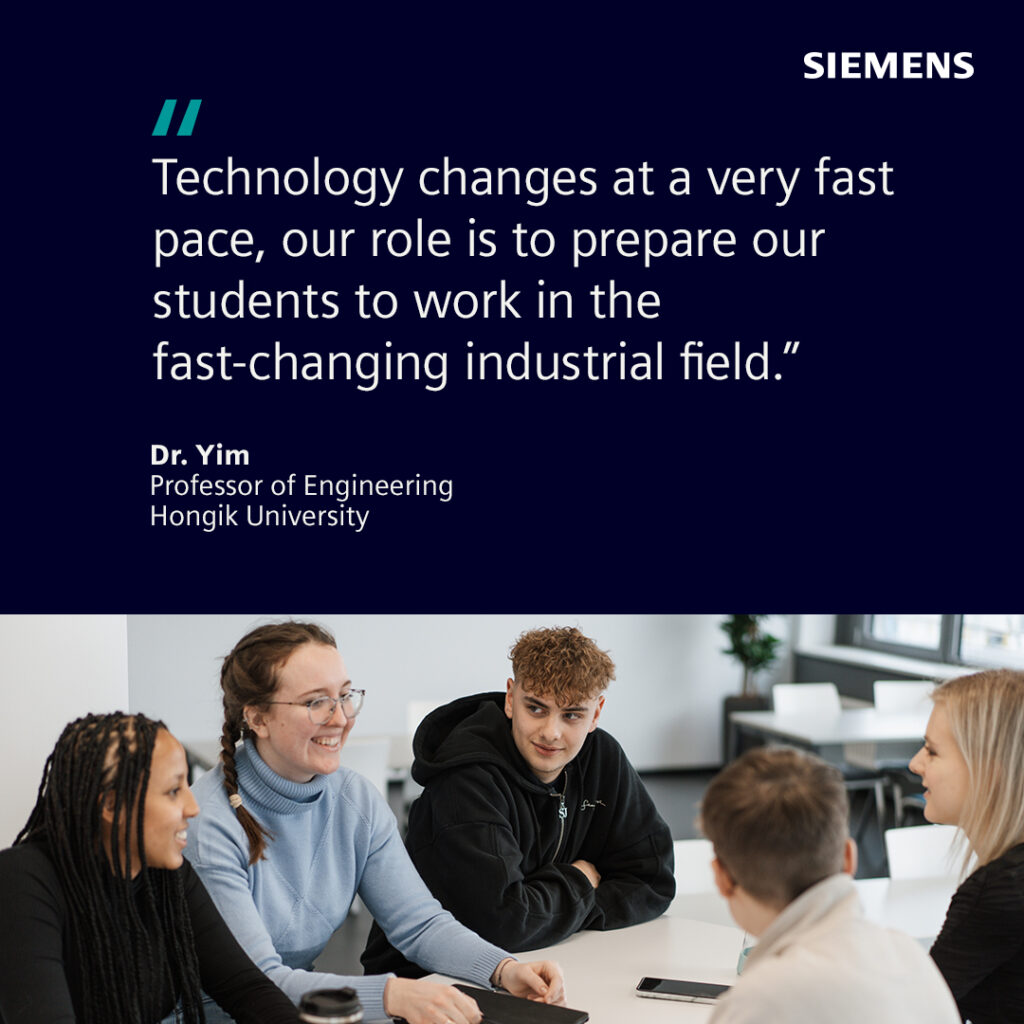
Tune in to the full episode to hear more about Dr. Yim and Dr. Shin’s insights on the present and future of engineering education in South Korea!
Connect with Dr. Yim:
Connect with Dr. Donghyuk Shin:
Connect with Shannon O’Donnell:
Connect with Dora Smith:
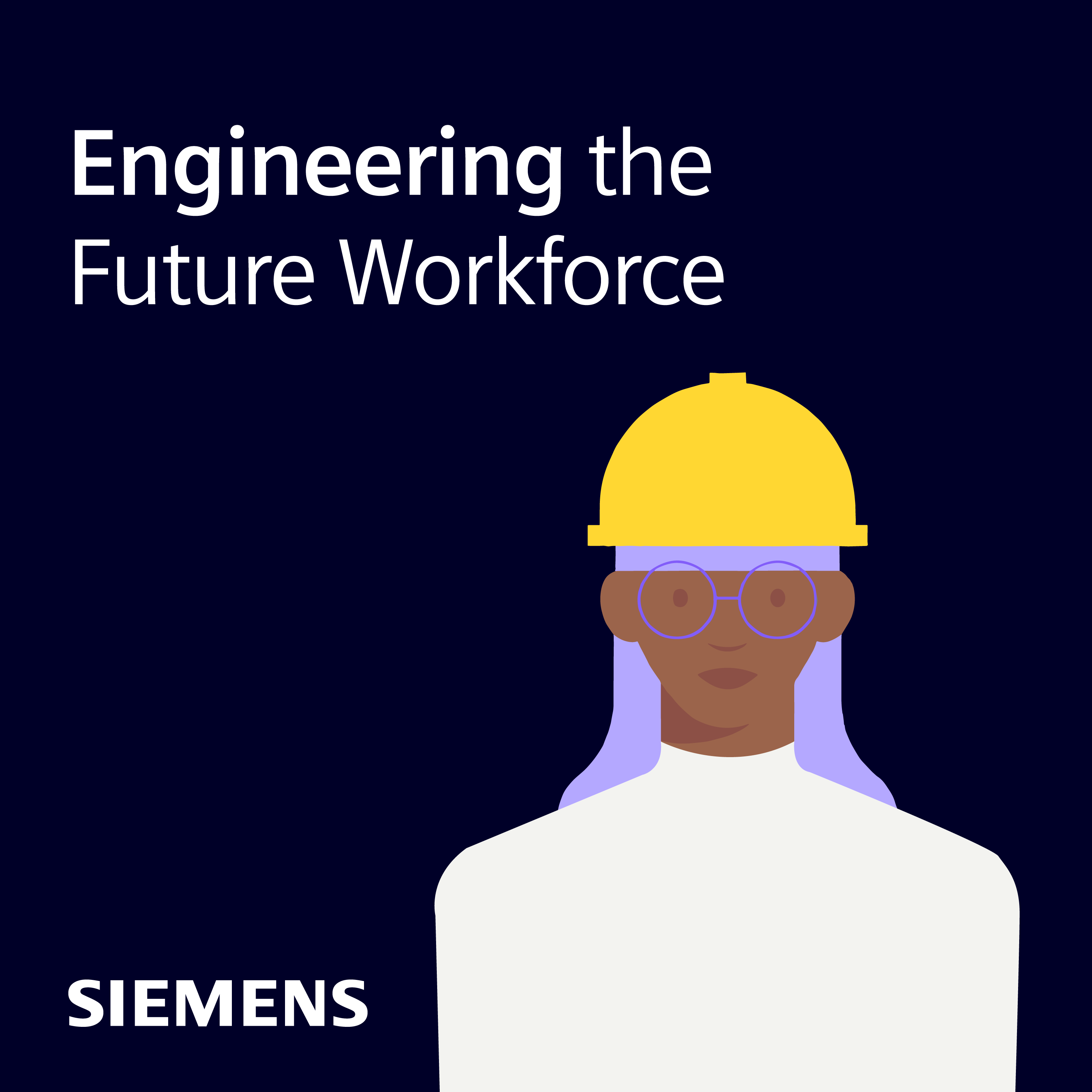
Engineering the Future Workforce
Engineering the Future Workforce by Siemens explores best practices to empower the next generation of digital talent. In this podcast series, Dora Smith takes you through discussions with leading voices from the world of engineering education who are preparing future engineers in Academia 4.0 to shape the world of innovation.
